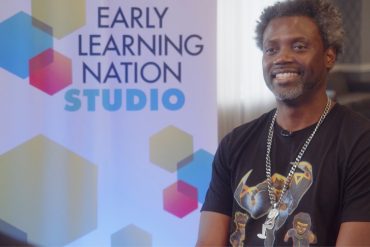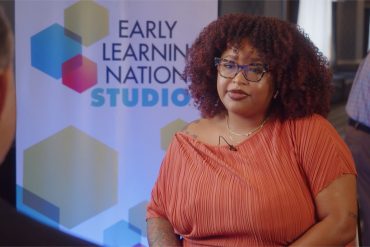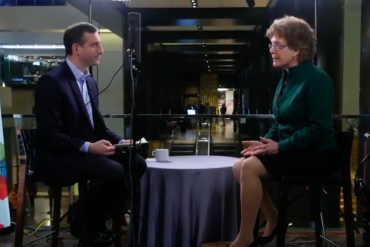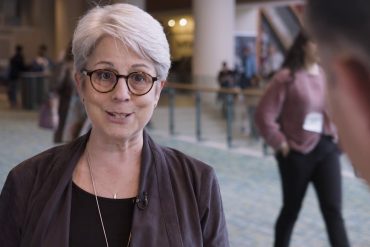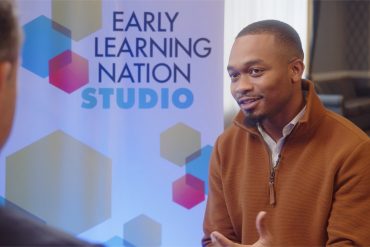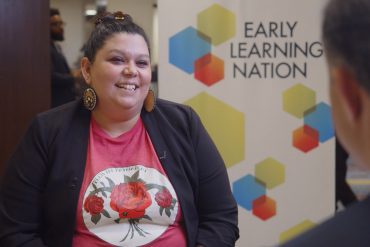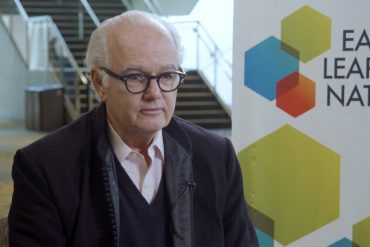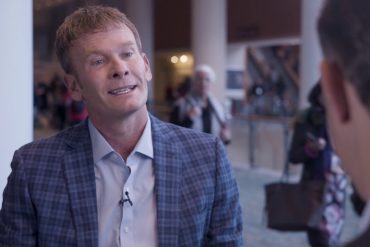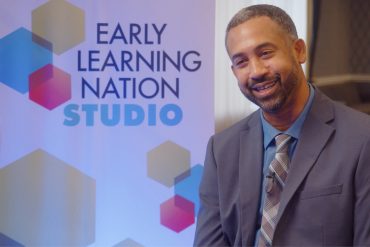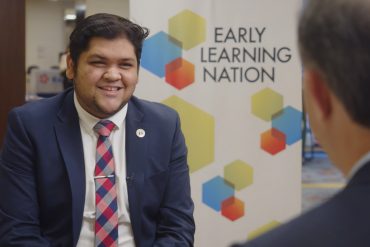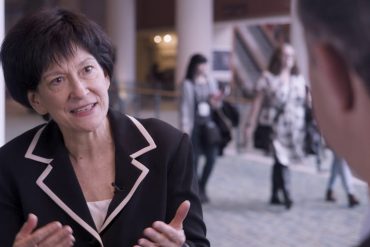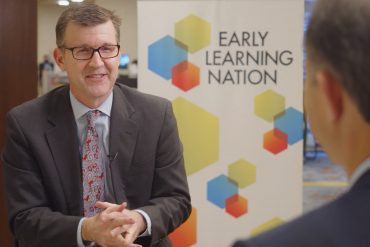Hotep is an artist and educator, but most importantly, he’s a father to two young “cubs.” Hotep has created a family friendly anime series, centered around a father and his two children, representing characters that look like them and instilling some of the important qualities for positive human development: Confidence, self-esteem and belief in oneself.
As part of their effort to target early childhood from ages zero to eight, BDCI-Colorado President Jalen Taylor is working to expand their reach across the Rocky Mountain state – with a special focus on mental health and wellness.
ReadyNation International convened its annual Global Business Summit on Early Childhood. What are the global trends and insights – and how can businesses best invest in their “workforce of the future?” Watch our conversation with Dr. Sara Watson.
Why is training not always the best – or even sufficient – way to prepare people for the hard and important work of educating children? Executive Director Judy Jablon describes how Leading for Children helps communities develop new ways to create learning experiences wherever children are.
Kamren Rollins wears multiple hats, serving as BCDI-DC President and COO of the Southeast Children's Fund. Both roles, however, share the same mission: Advancing opportunities for greater learning among—and enhancing development opportunities for—D.C.’s children, from the classroom to wraparound services.
April Fournier is not just a Portland (ME) Councilmember, she’s also an early childhood support specialist within an outpatient pediatric clinic. After the child’s medical health visit, Fournier checks in with the parents to provide support on the “social determinants of health”: housing, food and other areas critical to a child’s development.
According to NYU University Professor Lawrence Aber, poverty and violence are the two most toxic challenges for child development – areas he has researched from the U.S. to Africa and the Middle East. Regardless of location, children can experience poverty and violence in difference ways and levels. Aber explains the research, tools and tactics required to give children the best opportunities for successful development. Filmed for Early Learning Nation’s Mobile Studio at the Society for Research in Child Development’s biennial meeting in Baltimore, MD, on March 22, 2019. #SRCD19
In addition to working with children and parents while overseeing New Horizon Academy’s nearly 90 sites in four states, CEO Chad Dunkley also spends time working with public officials, helping expand access to early learning and drive policy changes that rework its “broken” economics.
How do you ensure that Eight Essential Outcomes for Black Child Development get to communities, schools, educators, leaders, researchers, policymakers and parents anywhere—or everywhere—in the U.S.? Build a National Village Network, explains NBCDI’s Director of Community Engagement.
A key part of youth advocacy is making sure the adults in the room are listening and taking action. Avinash Verma explains how youths connect with their communities differently than adults, and what that means in terms of needed resources and support. Avinash also explains how his community engagement has helped fuel is interest in aviation, including a work-learning program at the airport and with NASA.
Among the National Association for the Education of Young Children’s (NAEYC) many roles: Bringing together a range of professions – and perspectives – to reach consensus on important issues affecting early childhood education. What are these position statements, and how do they get created? NAEYC Senior Advisor Barbara Willer explains.
As President & CEO of the Smarter Learning Group, Ron Fairchild works directly with communities nationwide. He works with foundations, nonprofits and school districts across the country, all to expand educational opportunities for low-income kids and families. As Fairchild describes, getting to continual strong results takes work. But the ability to get there—and the responsibility to try to improve the next generation of outcomes—exists in every community.


